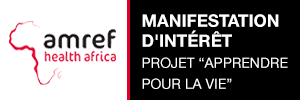.
Location: Either in one of our global offices (Bristol or London – UK, Madagascar, Belize, Indonesia, Kenya, Senegal, Timor-Leste), or home-based within countries where Blue Ventures has administrative capacity (Mozambique, Tanzania)
Closing date for applications: 31 October 2024.
Contract status: Global post, full-time
Start date: As soon as possible
Contract duration: 2 years fixed term (with the possibility of extension thereafter)
Remuneration: Salaries are gross per annum and will be in line with national salary grades and experience; circa £54,048 – £72,373 (UK); circa IDR 485,003,837 – IDR 717,805,679 (Indonesia); circa KES 4,852,623 – KES 7,181,882 (Kenya); circa TZS 70,126,672 – TZS 103,787,474 (Tanzania); circa MZN 3,273,650 – MZN 4,845,001 (Mozambique); circa XOF 20,296,316 – XOF 30,725,376 (Senegal); circa USD 27,768 – USD 38,846 (Timor-Leste); circa BZD 73,087 – BZD 94,560 (Belize); circa MGA 63,076,355 – MGA 91,145,332 (net per annum; only applicable in Madagascar).
We rebuild tropical fisheries with coastal communities
Blue Ventures is a marine conservation organization that puts people first. We support coastal fishers in remote and rural communities to rebuild fisheries, restore ocean life and build lasting pathways to prosperity. Our work began two decades ago in Madagascar’s remote coastal communities and is growing globally.
Across a dozen countries, we’re partnering with traditional fishers and community organizations to design, scale, strengthen and sustain fisheries management and conservation at the community level. We bring partners together in networks to advocate for reform, and share tools and best practices to support fishing communities across the globe.
Summary job description
Our Technical Knowledge team oversees Blue Ventures’ technical pillars (Secure Rights, Community-Based Fisheries Management, Food Security and Financial Inclusion) and supports the use of data for decision-making, providing tools, training, and guidance to partners and Blue Ventures’ staff around the world. This team integrates expertise and deep practical experience with pragmatism and a desire to enable others to deliver lasting change, by distilling global best practices and knowledge into usable tools, appropriate training, and responsive guidance and support. The team is also responsible for delivering peer learning exchanges and knowledge-sharing events both online and face-to-face across the organisation, in addition to overseeing technical publications.
We are currently recruiting for an exceptional individual to be part of this global team, leading a critical pillar of the strategy on Community-Based Fisheries Management. This individual would oversee the development, refinement, and roll out of tools and training to support partners working with communities around the world as they establish community-based fisheries management and locally managed marine areas. These types of tools and materials include:
Accessible tools and appropriate technologies:
Intuitive to use and readily available, including software and mobile apps for data collection and interpretation, simple decision support tools for assessment, planning, and problem resolution, and community-level materials for common activities, such as meeting facilitation guides or choice architecture to help communities decide which fish and fisheries to focus management attention on.
Educational resources:
Manuals, guides, videos, and online materials that provide concise information and serve as self-learning tools, allowing partners to access and acquire knowledge at their own pace.
Knowledge development:
Structured learning experiences to transfer theory to practice and enhance the background knowledge and competencies such as workshops or webinars, as well as development of good practice technical case studies and publications.
Skill development:
Specific hands-on training, mentoring, or peer learning exchange programmes to enhance technical expertise and the skills that are relevant to the context of each pillar.
As a Global Head, the position oversees regional and national colleagues to produce and iteratively improve the technical support, ensuring globally consistent guidance, while enabling context-specific differentiation among regions. The ability to work in a diverse and geographically dispersed team and to liaise and adapt techniques across different cultures will therefore be essential. As a Global Head and part of the Technical Knowledge team the position strives for Blue Ventures’ work to be at the forefront of best practice in the sector, by learning from partners and practitioners worldwide to distill learning and experience into usable practical approaches to address the common barriers to achieving coastal fisheries reform with a strong believe in placing communities at the center of decision making.
The Blue Ventures Technical Knowledge team has a unique vantage point, gained through supporting dozens of partners working with hundreds of communities across South East Asia, the Western Indian Ocean, West Africa, and the Caribbean as well as being part of international fora and members of expert panels. As such our technical team plays a key role in identifying, collating, sharing, and transferring key insights and successful approaches, updating information, training, tools, and guidance around the world, and building a community of practice around each of the pillar themes.
At the heart of Blue Ventures’ 2030 strategy is an unwavering commitment to empowering communities through participatory data collection, feedback, and use of fisheries and ecological data for adaptive management, and playing a leadership role in our sector to make this the norm. The Global Head – Community-Based Fisheries Management will have a strong understanding and technical experience of data-driven adaptive fisheries management in the small-scale fisheries sector, with proven skills in coaching and team building skills and effective management capacity in leading a multi-disciplinary team and working cross-functionally.
Blue Ventures recognises the key roles that women play in fisheries management and conservation as fishers, gleaners, processors, sellers and negotiators and seeks to highlight the important value of their roles in the fisheries value chain, that are often invisible, so that they also benefit. An understanding of the challenges faced particularly by women in fisheries and experience of working in communities to find some practical solutions desirable for this role. The role will work in close collaboration with the Technical Knowledge team to support these goals, which includes working with fisher associations and committees to increase the participation of women in fisheries management.
The successful candidate will have a deep understanding of the complex challenges facing tropical coastal fisheries and the small-scale fishing communities that depend on them. They will have practical experience of working with coastal communities in Africa, Asia or Central America, and partnering with civil society organisations, non-governmental organisations, government institutions, and other stakeholders to identify and address fishing issues, placing communities at the heart of the solution.
The successful candidate will thrive in environments that are dynamic, fast-paced, collegiate, and ambitious, will have a proven track record in distilling complexity into easily interpretable material, able to deliver high-impact written work, and in communicating effectively with diverse audiences, ranging from fishing communities, practitioners, academic institutions, governments, and other technical experts.
The role entails leading an interdisciplinary and international team, with strong cross-functional collaboration. The successful candidate will report to Blue Ventures’ Director of Technical Knowledge and will be based in one of our regional hubs, with regular overseas travel to work with partners and field teams around the world.
The core technical scope of the role’s portfolio will include:
• Community-based fisheries management for low-resource, data-limited fisheries including fish biology, coastal ecology, fisheries science, governance and participatory management and decision making;
• Participatory assessment, management and conservation of tropical marine habitats (integrating scientific and community-based habitat mapping and monitoring, fisheries data collection and use, marine spatial ecology and coastal resource governance)
• Following and informing best practice and policy for community based small-scale fisheries management and habitat protection




